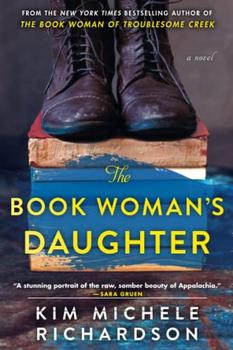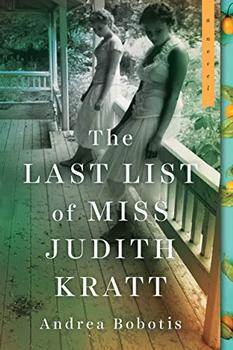Summary | Excerpt | Reading Guide | Reviews | Beyond the book | Read-Alikes | Genres & Themes | Author Bio

The Treeborne family has lived on The Seven – the local sobriquet for a seven-acre stretch of forested Elberta, Alabama land - for nigh on eighty years. However, with the nearby Hernando de Soto dam soon expected to give way and flood the surrounding area, an elderly Janie Treeborne is being threatened with eviction from this patch of the world her bloodline has claimed their own. And she is refusing to leave. As Janie tells her grandson, who is interviewing her about the family history, "me and this place is just too tangled up."
Janie recounts how back in 1958, as a girl of 13, she discovered that her MawMaw, Maybelle, left her own two sons, Luther and Ren (Janie's father), with little more than five dollars apiece in her last will and testament. Janie's aunt Tammy however, suspiciously inherits the entire family land and aims to sell off The Seven and use the money to pursue her dreams of becoming a Hollywood star.
Angered by this injustice, the teenaged Janie convinces a ragtag gang of older kids to kidnap her aunt to prevent the land from being sold. Among the accomplices is Ricky Birdsong, a former college football star who sees visions of Jesus after suffering from severe head injuries on the field. Soon Janie realizes she's in over her head and runs away into the woods, taking with her one of her granddaddy Hugh's bizarre "assemblies," a mud boy sculpture named Crusoe that may or may not have dark magic powers. Here she waits out the days, loses an eye to a stray branch, and lives off the land with only Crusoe for company. Meanwhile, the Elberta townsfolk continue to search for missing Tammy.
In addition to these events set in 1958, the elder Janie also conjures up a series of flashbacks from 1929, when her granddaddy Hugh, then a laborer working on the Hernando dam, first met her MawMaw. Maybelle, however, also harbors a taboo love for Lee Malone, a local African-American orchard keeper and blues singer who happens to be Hugh's closest friend. This secret affair threatens to tear the Treeborne family apart.
Treeborne is swamped in a sense of futility, a Southern setting that is a force to be reckoned with. Everyone and everything feels weighed down by the town and land. Dreams wilt. Plans go awry. Evildoers don't necessarily get their comeuppance. It almost feels as if Elberta itself has an insidious power to distort the truth and break its inhabitants' will to leave. No matter the potency of their hopes – Tammy with her unfulfilled actress aspirations, Hugh whose acclaimed assemblies are stolen, Lee who is offered a recording contract opportunity – these characters are doomed to spend the rest of their days not achieving much in "Elberta—Shithole, Alabama, USA."
At times Treeborne reads like a Southern Gothic novel by the numbers. This is a book of rattlesnakes and corn liquor, of a cursed backwoods family living on cursed backwater soil. Johnson appears to relish giving voice to the gross and grotesque. His characters are the maimed, the disturbed, the sordid and the damned. This is a cast of kooks who fart and sweat, a smattering of whom have an ingrained perverse propensity to indulge in necrophilia and incestuousness. All these grimy, twisted elements are seemingly requisite in today's Southern novel tradition, as carved out by writers such as Harry Crews, William Gay, Donald Ray Pollock et al. As such, a cynical reader may deem much of what's on offer as mere genre box-ticking.
Thankfully, Johnson's fecund language – "The Seven more gorgeous than any piece of land she'd ever traipsed." – rooted in an earthy Southern vernacular render these somewhat hackneyed aesthetic points fresh and poetic. While it offers little that is new to this literary subgenre, Treeborne is a worthy addition to the contemporary Southern canon.
![]() This review was originally published in The BookBrowse Review in July 2018, and has been updated for the
May 2019 edition.
Click here to go to this issue.
This review was originally published in The BookBrowse Review in July 2018, and has been updated for the
May 2019 edition.
Click here to go to this issue.

If you liked Treeborne, try these:

by Kim Michele Richardson
Published 2022
Honey Lovett, the daughter of the beloved Troublesome book woman, who must fight for her own independence with the help of the women who guide her and the books that set her free.

The Last List of Miss Judith Kratt
by Andrea Bobotis
Published 2019
Some bury their secrets close to home. Others scatter them to the wind and hope they land somewhere far away.
Your guide toexceptional books
BookBrowse seeks out and recommends the best in contemporary fiction and nonfiction—books that not only engage and entertain but also deepen our understanding of ourselves and the world around us.